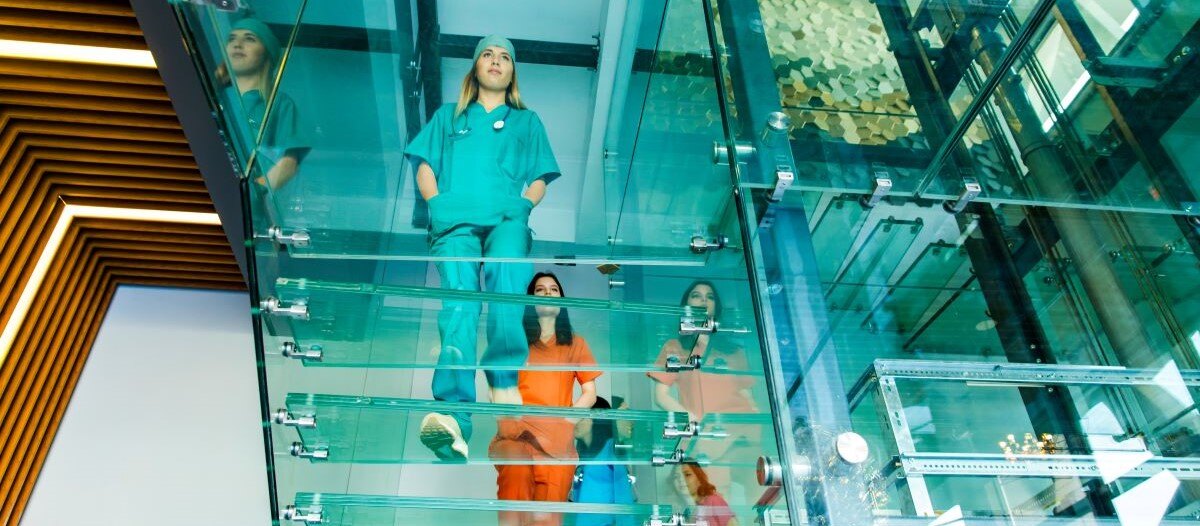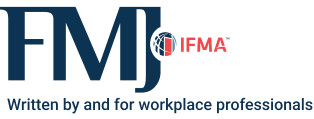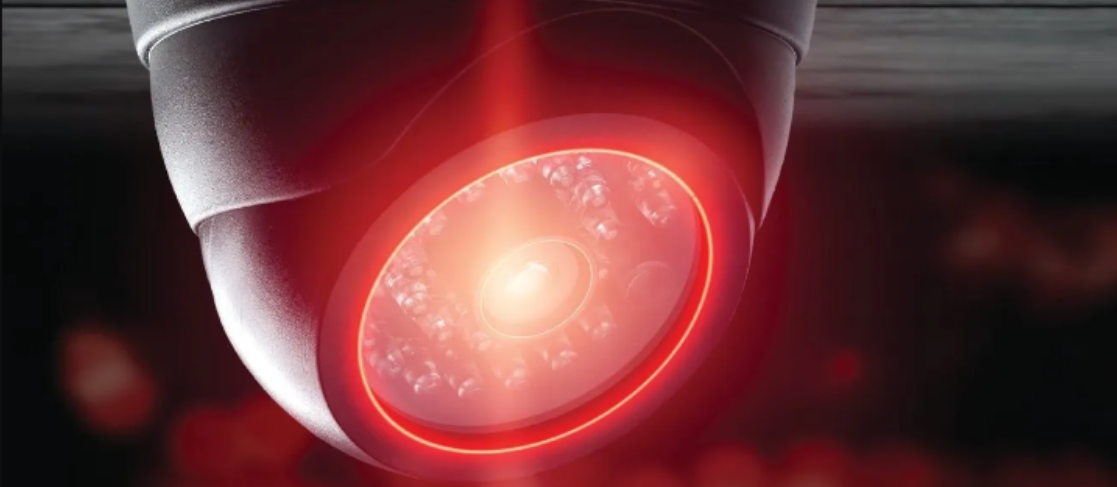Temporary Containment & ICRA Experts in Project Management
FM’s role in safeguarding health care facilities

In the realm of facility management, the spotlight often falls on the meticulous orchestration of spaces, services and resources to ensure the seamless operation of complex infrastructures. Within the intricate world of facility management, there is a notable category of facilities that require special skills and expertise: health care complexes.
According to the World Health Organization (WHO), when protocols in health care spaces are followed, 70 percent of potential infections in patients and workers can be prevented. Knowing this, it is no surprise that infection control becomes a key component of all health care FM teams’ projects. Thus, all managers must have a clear understanding of the risks associated with all projects in health care spaces.
The very essence of health care FM lies in balancing the constant drive for improvement and expansion with an unwavering commitment to patient care and safety. These types of projects require not only FMs, but also teams of dedicated professionals who work behind the scenes. It is here that the roles of temporary containment experts and infection control risk assessment (ICRA) experts converge to play a pivotal role in the success of construction projects inside health care facilities.
Understanding temporary containment's role
The partnership between temporary containment experts and ICRA specialists is critical to health care FM. Temporary containment experts bring their unique skillsets to the table by fulfilling designing requirements with temporary wall systems, while also collaborating seamlessly with ICRA experts to ensure the project complies with all safety and infection-control standards.
Temporary containment experts’ role is multifaceted, encompassing the strategic planning, design and implementation of containment solutions that protect patients, health care staff and facility operations. These experts understand that the health care environment is exceptionally difficult and that disruptions can have profound consequences – infection control is non-negotiable. They work closely with the health care FM team to establish and maintain the necessary barriers, isolation measures and safety protocols that not only comply with industry standards, but also align with the facility’s unique needs.
When preparing to work with hospitals, clinics and other care centers, there are several different training programs that temporary wall experts can immerse themselves in to learn more about ICRA. These programs will go over a variety of best practices on maintaining the safest environment possible, which include learning about vulnerable populations, hazard identification, control measures, surveillance monitoring, regulations and guidelines, crisis management ICRA-compliant barriers and on-site demonstrations.
Temporary containment experts function as the architects of safety, working behind the scenes to ensure that construction, or other infrastructure changes, continue while prioritizing the health and well-being of all involved. Temporary containment experts' relationship with health care FM teams and construction teams is the foundation from which these organizations can then grow their services.
The indispensable roles played by temporary containment and ICRA experts
The stakes are high in the realm of health care FM, so it is crucial that temporary containment experts ensure that operations run smoothly, especially during construction or renovation. Temporary containment experts craft solutions that encompass all facets of physical containment barriers, considering dust and debris control, noise reduction, structural integrity and more.
These experts oversee the installation of multiple types of ICRA barriers and choose what will best fit the budget and type of project occurring. These could be drywall construction barriers, containment walls, temporary containment barriers, polycarbonate panels or modular containment walls.
Modular ICRA containment walls are pressure-fitted into construction spaces, meticulously ensuring that these barriers meet the stringent requirements of ICRA guidelines. At the same time, ICRA specialists assess and mitigate the risks posed by construction or renovation, ensuring that the health and safety of residents, patients and health care staff remain the top priority.
Both temporary containment and ICRA experts understand construction types and risk groups associated with each wall option, which allows them to determine the appropriate level of precautions, then implement control measures that minimize the risk to these individuals.
The pivotal role of preplanning
Thorough preplanning, a guiding principle in health care FM, is essential to preventing the spread of infection during the construction process. For health care projects, alignment and unison are the keys to success. This starts with the seamless coordination of the entire team, ranging from facility management to contractors, subcontractors and, notably, containment subcontractors.
Each project detail, timeline and modification should be carefully examined before construction begins. This preplanning stage guarantees that all parties involved share a common understanding of the project's scope and goals.
Yet health care projects, like any complex development endeavor, are not immune to the occasional curveball. Last-minute adjustments or changes are often inevitable. In these moments, open communication becomes the glue that holds the project and its safety standards together. By maintaining clear channels for dialogue and swift decision making, adjustments can be made quickly, allowing projects to adapt without coming to a halt or endangering patients and staff.
The ability to pivot efficiently is a cornerstone of facility management that temporary containment experts and ICRA specialists must navigate as these challenges appear. Ideally, this happens with flexibility and a focus on the overarching goal of safeguarding the health care facility's integrity and the well-being of its occupants. This constant feedback loop between all parties creates a dynamic and responsive ecosystem that propels health care projects forward, even in the face of unforeseen obstacles.
Challenges arise, strategies unfold, collaboration prevails
Challenges within the intricate realm of health care construction and renovation are abundant, to put it simply. It is the expertise of temporary containment experts and ICRA specialists that transform these hurdles into opportunities for innovation.
One of the common challenges project managers may face is the inevitability of last-minute adjustments to the project. When these occur, time is of the essence. In these situations, the ability to quickly adapt and maintain project momentum is a hallmark of success.
For instance, the role of temporary containment experts and their companies is often a subcontractor role, but these teams must be able to integrate themselves into the FM team, alongside contractors and other subcontractors. They must function as an extension of the collective construction and/or project effort.
When last-minute changes occur, temporary containment expert teams must be able to rapidly respond. This is necessary to keep the project moving, but also to minimize the potential spread of any infections that occur from the project. Without any temporary walls, 15 out of 100 patients are susceptible to health care associated infection.
However, the importance of fluid team collaboration does not stop there. Throughout the construction process, FMs and containment experts should serve as a bridge and align the visions of all involved. This dynamic communication between all stakeholders ensures that when challenges do arise, a strategic response is ready. This makes progress and safety unified forces and partners in the achievement of the completion of projects.
A unified approach to health care project management
In the complex world of health care project management, where the well-being of patients, staff and the integrity of the facility are essential, the collaborative efforts of temporary containment experts and ICRA specialists play a pivotal role in ensuring the success of these critical undertakings.
The journey begins with seamless teamwork. Temporary containment experts and ICRA specialists bring varying skills and experiences to the table. They work diligently side by side, from the initial planning stages to the designing and execution of the containment solutions. Their mission is to create protective barriers that safeguard from disruptions while maintaining strict infection control standards.
The significance of thorough preparation cannot be overstated. Preplanning is the most essential part of any project, uniting everyone involved and ensuring that all stakeholders share a common vision and are well-prepared to face any unforeseen challenges.
Additionally, collaboration is key. FMs and containment experts work together to align their objectives and seek out the success of the project, ensuring that progress and safety are partners rather than adversaries.
Oftentimes in health care construction and renovation, challenges occur, but the expertise of temporary containment experts, ICRA specialists, facility managers and construction site managers transform these obstacles into opportunities for innovation. This collaborative approach, rooted in communication, adaptability and a shared commitment to safeguard health care spaces, forms the foundation upon which the health care projects of the future will be built.
In this collective effort, the goal is the successful completion of health care projects, in which the health and well-being of all involved remains the top priority. Each project serves as a learning opportunity for the health care project management team, as they grow their skillset and ability to recognize ways to pair the construction process with safety guidelines.

Patrick Kiessling serves as president of Temporary Wall Systems. He has worked with more than 10 franchises in the construction, property management and home services industries. Kiessling spent five years with redbox+, going from franchise owner to brand president and leading the growth of the B2B construction franchisor from four units to more than 300 units before successfully exiting in 2021.
References
who.int/news/item/06-05-2022-who-launches-first-ever-global-report-on-infection-prevention-and-control
tempwallsystems.com/blog/2023-icra-training-guide
tempwallsystems.com/blog/icra-barriers-what-to-know
Read more on Operations & Maintenance , Occupancy & Human Factors and Risk Management
Explore All FMJ Topics








